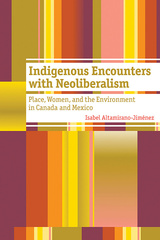
The Proposal Economy
Neoliberal Citizenship in “Ontario’s Most Historic Town”
In 2001 the northern Ontario town of Cobalt won a competition to be named the province’s “Most Historic Town.” This honour, though purely symbolic, came as Cobalters were also applying for and winning federal and provincial development grants to remake this once important silver mining centre as a destination for mining heritage tourism.
This book, based on extended ethnographic and multi-method research in Cobalt, examines the multiple ways that development proposal writing is intertwined with neoliberal citizenship. Under current forms of neoliberal governance, proposal making and applying for grants have become normalized activities for individuals, non-profit organizations, schools, and municipalities. The authors argue that the residents of Cobalt have become entrenched in a “proposal economy,” a system that empowers them to imagine, engage, and propose but not to count on the state to provide certain services. They further show that, by embracing this technology of neoliberal governance, the long-standing civic practices and citizenship subjectivities in Cobalt are being transformed.
The Proposal Economy makes an empirical and theoretical contribution to the literature on citizenship and neoliberal governance. In addition to the detailed and nuanced ethnography, it provides new perspectives on the ways that citizenship is produced and reproduced under conditions of neoliberalism.
This book will be of interest to geographers, anthropologists, sociologists, and political scientists, as well as students and scholars of public policy and public administration and Canadian studies specialists.
Introduction
1 Ontario’s Most Historic Town
2 Placing Cobalt
3 Citizenship and Local Government
4 Reluctant Regionalists
5 The Proposal Economy
Postscript
Appendices
Notes
Bibliography
Index











